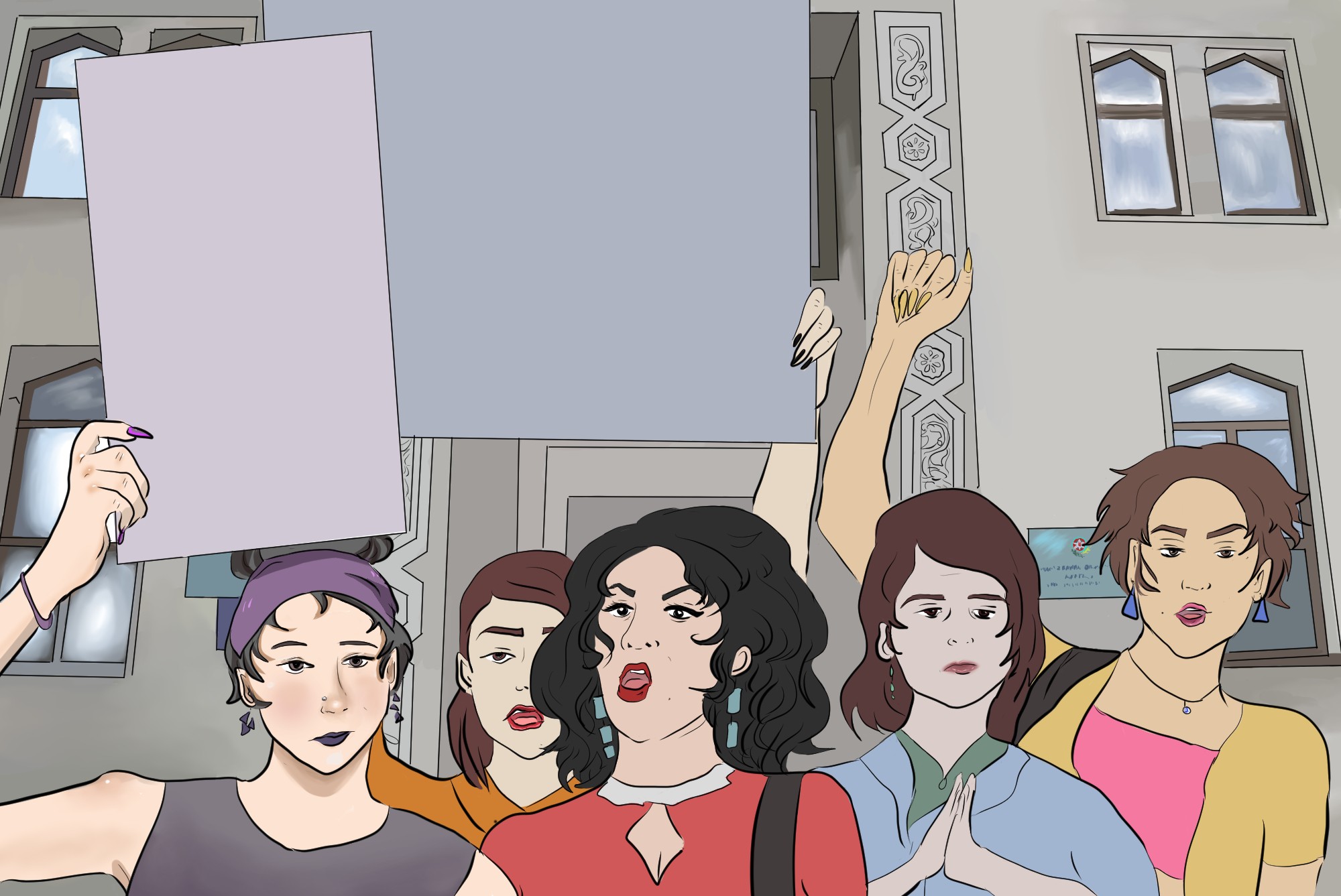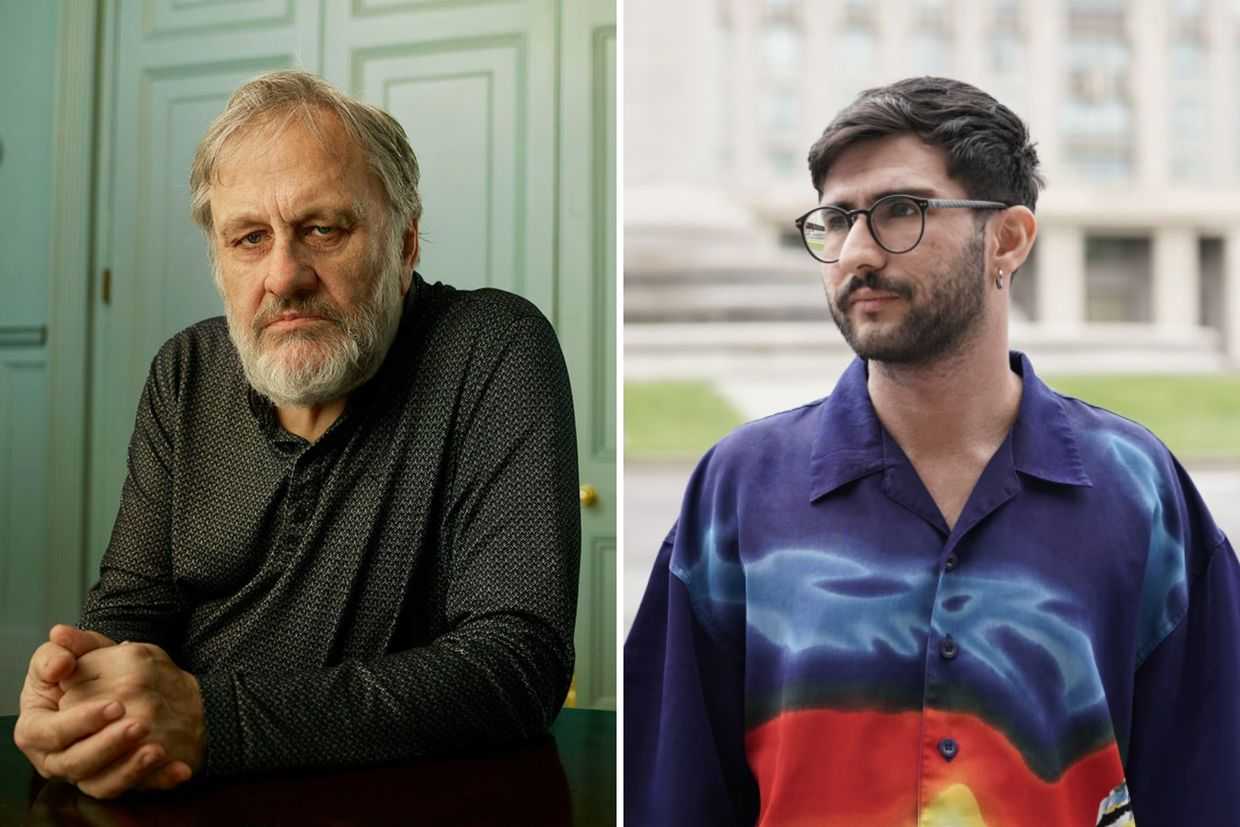
Queer sex workers in Azerbaijan face systemic discrimination by national and law enforcement agencies, while also struggling to find acceptance within the larger queer community.
After losing their job at the age of 17, Matan was forced to resort to sex work to make ends meet. Matan says their age and cross dressing only made finding an alternative harder.
Today, at 19, Matan finds themself subject to public shaming and police intimidation on a regular basis.
Merriment drowned out Matan’s voice in the lively Baku drinking hole close to their flat, as they described how many of their peers struggle to find a place in the larger queer community — they only have each other to rely on.
‘Once, a sex worker acquaintance of mine received payment in dollars from a client’, Matan tells OC Media. ‘The money was counterfeited, and when they took the money to the bank to convert it into the national currency, he was detained by the police, demanding money to release him’.
‘Other sex workers banded together and saved him by paying ₼5,000 ($2,900) to the police under the guise of a fine’, Matan recalls with a smile.
Tight-knit support groups
Small groups of sex workers are often in close contact with each other, and they represent the first line of support for members of their community, especially in emergencies. However, these communities are still barred from accessing legal, social, or psychological support due to their professions, gender identities, or orientations.
These tight-knit groups have developed separately from Azerbaijan’s broader queer community due to the stigma surrounding sex work.
Sanan, a university student by day and sex worker by night, believes he was unable to find a place in Azerbaijan’s queer community due to his profession, often finding himself forced to remain silent about what he does for a living.
‘Because of my job, I can’t spend enough time with people in the community. In general, I don’t even tell people about my job’, says Sanan in the comfort of his flat, which he endearingly refers to as his ‘office’.
‘I am strangely alienated when I do mention that I am a sex worker as if [it will] create a risk of exposure to them.’
Sanan often finds himself jumping through hoops to maintain a normal life, experiencing constant harassment and bullying at the hands of his university’s administration — bullying that only slightly abated once he stood up to the dean.
Organisations that claim to champion queer rights can also inadvertently deepen this divide between queer sex workers and the rest of the queer community.
‘A normal transgender person would not be a sex worker’, said Kamran Rzayev, Chair of the Gender and Development Awareness Public Union, in an interview with Dalan 18+ in 2021.
Other individuals, such as Hayat Alisoy, a transgender sex worker, says she was met directly with criticism at gatherings held by the queer community.
‘You wait for your clients on the side of the road. Because of you, we have a bad reputation’, one participant told Alisoy — a comment that the event organisers disregarded.
Systemic violence to crushing indifference
Queer sex workers are often prime targets of police stings and are often detained and arrested for solicitation by undercover police officers.
‘They call us whores and they forcibly abduct us from roads’, Matan says.
‘Once, when I was 17, the police detained us. When we were questioned about who we are, they insulted us, forced us into a car, and took us away from Baku’ they said. ‘They told us to have sex with them or to give them money. We had to give them money and then they left us in the middle of nowhere.’
Even when faced with life-threatening situations, queer sex workers might choose not to seek help from the police.
‘Whenever something terrible happens, I don’t even try to report it to the police’, said says Alisoy. ‘Because now I know that they won’t take my case seriously’.
‘One day, I went to a client’s house to do my job’, she recalls. ‘The client threatened to distribute a sex tape he had recorded of us in secret’.
‘There was a knife right on the table, and I couldn’t scream or call for help for fear for my own safety. Then when I got in front of the building, I saved myself by screaming, and I went on with my life.’
Azerbaijan’s queer community remains unrecognised by the state, making them open and valid targets for discrimination.
Emin Abbasov, an Azerbaijani lawyer, told OC Media that actions aimed at inciting, national, racial, or religious hatred, and hostility are prohibited by Article 283 of Azerbaijan’s Criminal Code. However, Azerbaijan’s Prosecutor General continues to stress that the state does not offer protection to queer people because they are not recognised as a ‘social group’ under the constitution, which, in turn, forces Azerbaijan’s sex workers to utilise existing loopholes to normalise their existence.
[Read more: The rise of homophobic hate speech in Azerbaijan]
This discrimination, combined with the alienation they experience from both the queer community and society as a whole, is often exacerbated by smear campaigns in the media that make them easy targets for extortion and blackmail.
‘Radical nationalist and religious groups spread the personal information of sex workers and marginalised people’, Matan says. ‘These groups are especially popular on Telegram, and they can pass your information on to thousands of people in hours, making you a direct target.’
‘You can see thousands of articles, news, and video content in the headlines targeting sex workers. In the eyes of the people, sex workers are portrayed as monsters to be isolated.’








